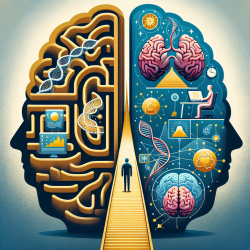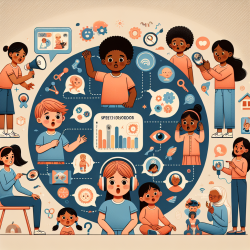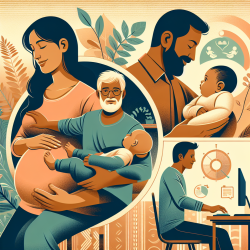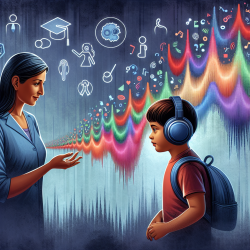Understanding Classism and Its Impact on Psychological Well-being
In today's diverse educational environments, understanding the nuanced impacts of social class and classism is crucial for practitioners aiming to improve their skills and provide effective support. The research article, "The Effects of Different Types of Classism on Psychological Outcomes: Preliminary Findings," offers valuable insights into how classism affects psychological outcomes such as stress, anxiety, well-being, and attitudes toward mental health care.
The Social Class Worldview Model-Revised (SCWM-R)
The SCWM-R, developed by Liu (2011), provides a framework for understanding social class as a subjective worldview. This model emphasizes how individuals perceive and interact with the world based on their perceived social class, which often leads to classism—categorizing others based on assumed social class standing.
Types of Classism
The research identifies different types of classism: downward, upward, and lateral. Each type uniquely impacts psychological outcomes:
- Downward Classism: Prejudice towards those perceived as lower class, often resulting in negative attitudes toward mental health care and increased psychological distress.
- Upward Classism: Prejudice towards those perceived as higher class, which can lead to stress and anxiety but does not significantly affect attitudes toward mental health care.
- Lateral Classism: Prejudice towards peers within the same social class, significantly impacting stress, anxiety, and well-being.
Implications for Practitioners
Practitioners can leverage these findings to enhance their understanding and support of clients from diverse social backgrounds. Here are some strategies:
- Recognize the Unique Impact: Understand that each type of classism affects individuals differently. Tailor interventions to address specific psychological outcomes associated with each classism type.
- Promote Mental Health Awareness: Encourage open discussions about mental health within various social class groups to reduce stigma and promote seeking mental health services.
- Challenge Classist Assumptions: Help clients identify and challenge internalized classist beliefs, such as meritocracy and upward mobility myths, which can exacerbate stress and anxiety.
Encouraging Further Research
While this study provides preliminary findings, further research is essential to deepen our understanding of classism's multifaceted impacts. Practitioners are encouraged to explore additional studies and contribute to the growing body of literature on this topic.
To read the original research paper, please follow this link: The Effects of Different Types of Classism on Psychological Outcomes: Preliminary Findings.










